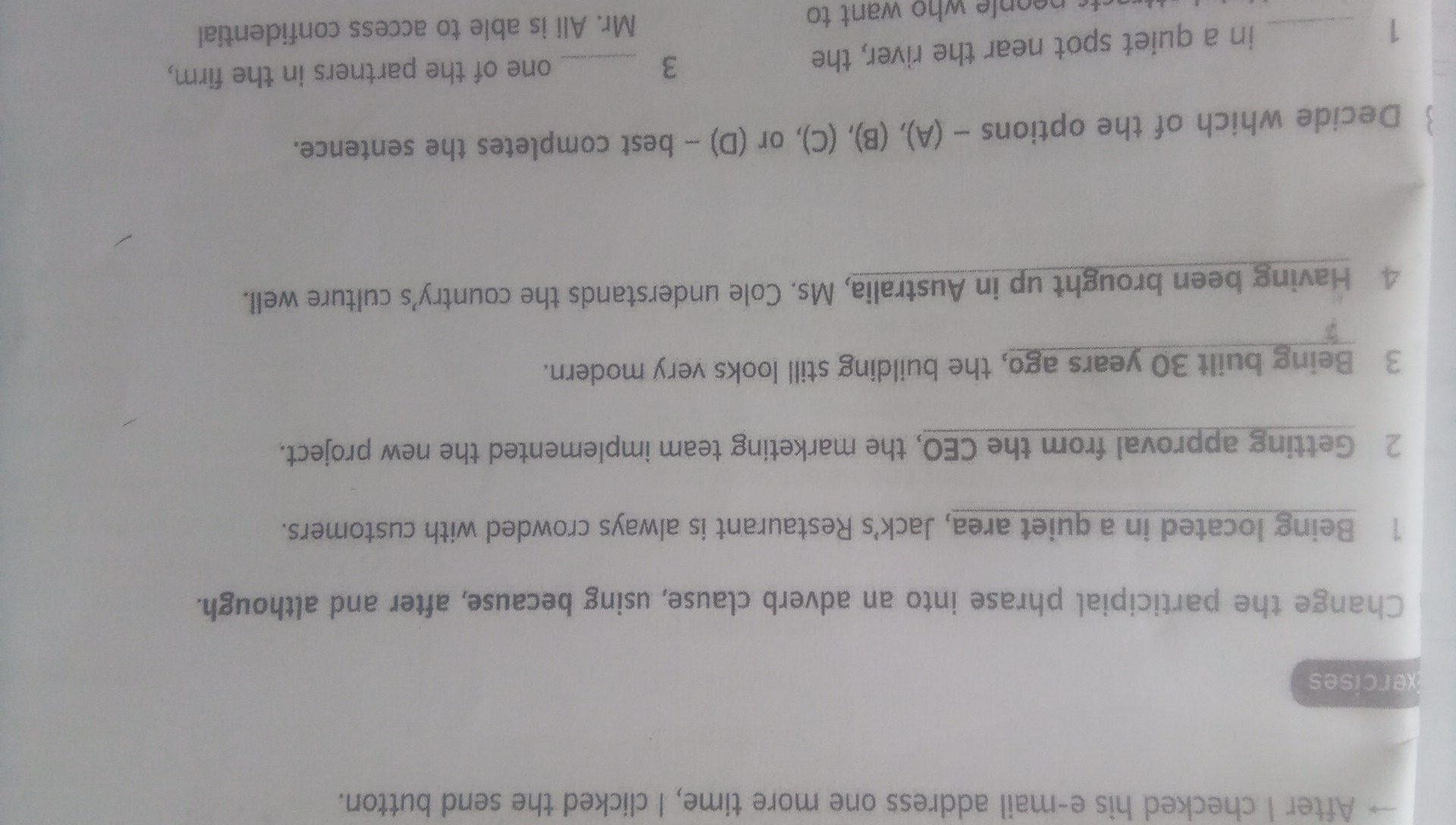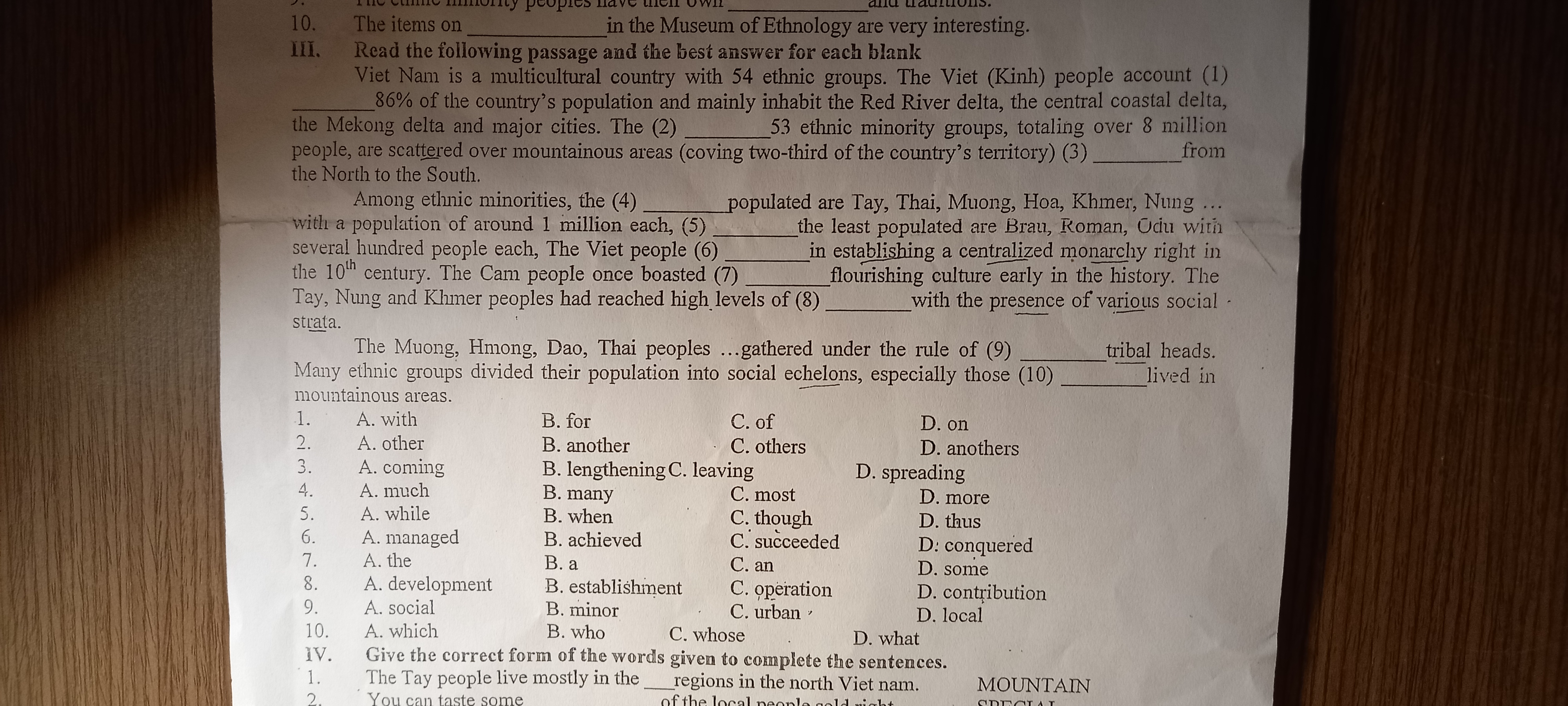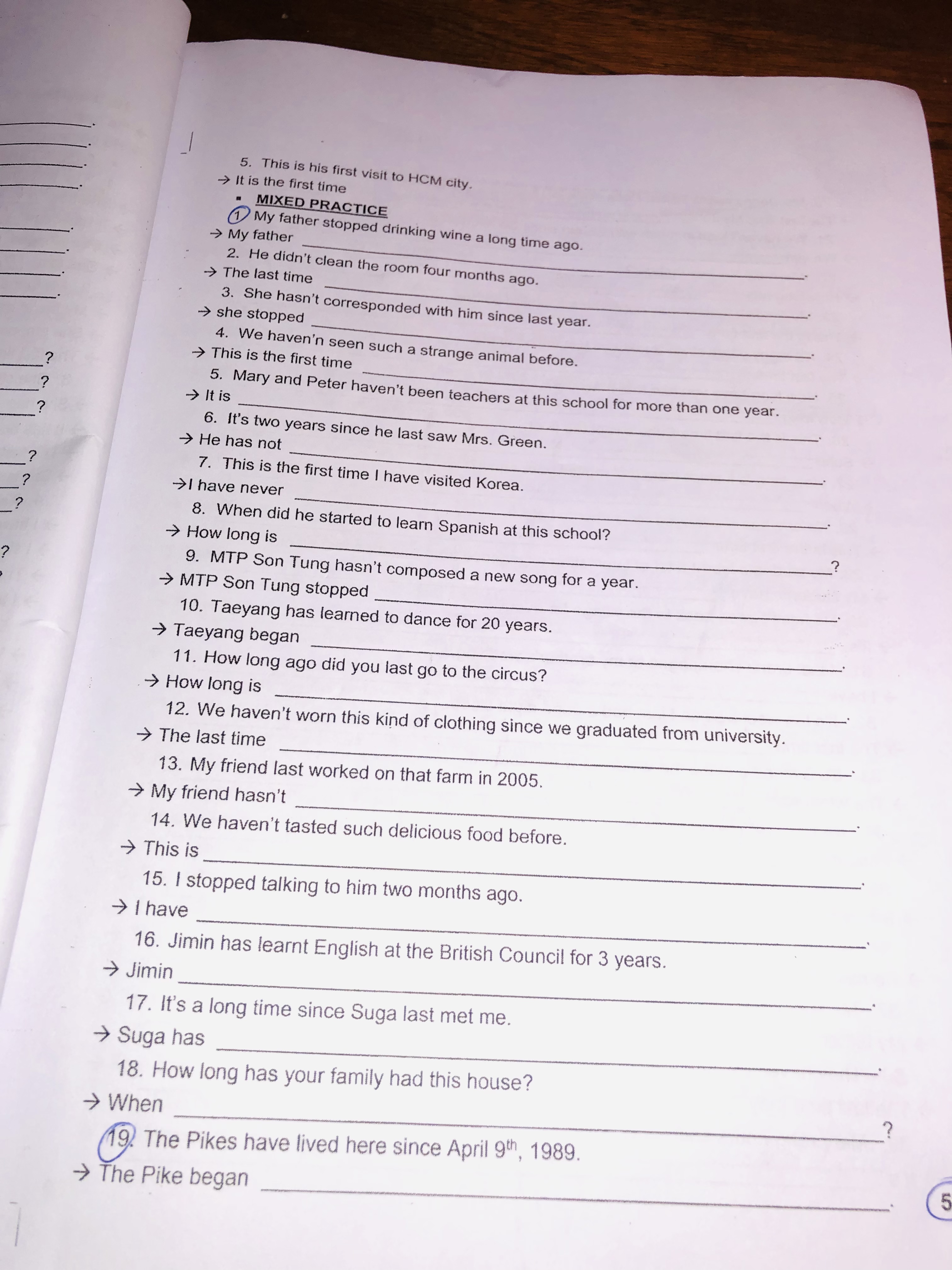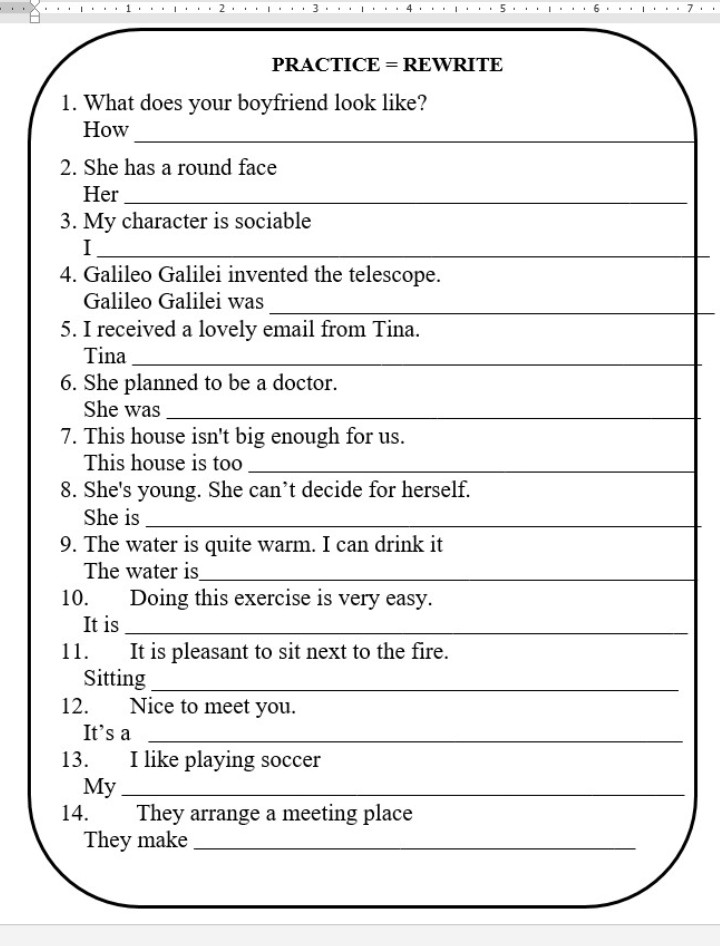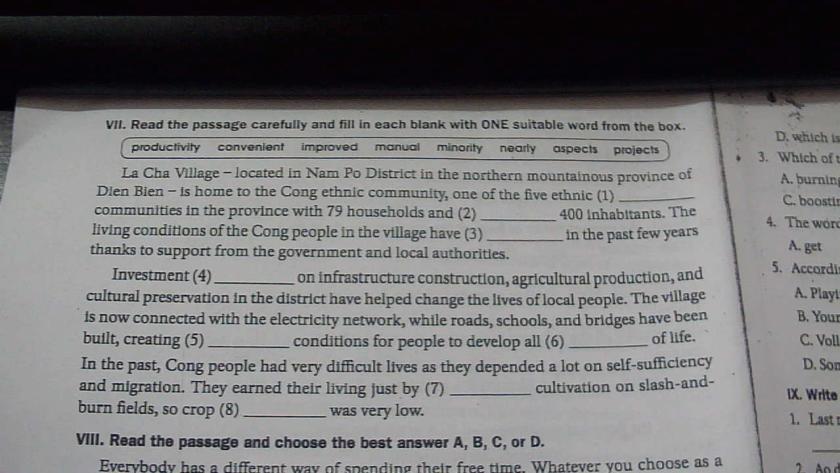Tiếng Anh
-
 Linh Nguyen
Tiếng Anh
5 1 câu trả lờiThích Bình luận
Linh Nguyen
Tiếng Anh
5 1 câu trả lờiThích Bình luận -
 Vương Đặng
Tiếng Anh
4 1 câu trả lờiThích Bình luận
Vương Đặng
Tiếng Anh
4 1 câu trả lờiThích Bình luận -
 Mai Trang
Tiếng Anh
23 1 câu trả lờiThích Bình luận
Mai Trang
Tiếng Anh
23 1 câu trả lờiThích Bình luận -
 Trần Thị Mỹ Lệ
Tiếng Anh
Lớp 8
Trần Thị Mỹ Lệ
Tiếng Anh
Lớp 8
Write about life in the countryside lớp 8
Write a paragraph 80-100 words about the life in the countryside hướng dẫn các em cách viết đoạn văn bằng tiếng Anh đưa ra ý kiến về cuộc sống ở làng quê hiệu quả.
Gợi ý 1
Living in the countryside is really good for your life because of these reasons. First, living in the country can bring you a clean environment. The air is fresher and there are lots of trees, rice fields and rivers, you can walk on the fields or along the rivers to enjoy the clean and fresh air there in the early morning.- Second, living in the countryside is cheaper than in the city because people there have lower income and don’t have the habit of spending a lot of money. If you live in the country, you can save a lot of money. Finally, people in the country are more friendly and opener than people in the city because they live near each other. People live together in a small village so they can talk countryside can have festivals and you can join and fell very happy. In conclusion, there are many benefits of living in the country.
Gợi ý 2
I think life in the countryside has many good points. Firstly, people are friendly to each other. They are willing to help whenever someone gets into trouble. They are so outgoing that we can make friends with them easily. Secondly, life in the countryside is peaceful and simple. There aren’t many vehicles moving on the road as in the city. Thirdly, food is obviously fresher and cheaper. We can eat without worrying too much about food’s safety because vegetables are grown naturally. Finally, traditional activities are very interesting to take part in. In each region, there are its own activities attracting visitors. For these reasons, the countryside is the ideal place for me to live.
* Xem thêm nhiều mẫu khác tại: Write a paragraph giving your opinion about life in the countryside
Ngoài ra, mời bạn đọc tham khảo thêm nhiều tài liệu ôn tập Tiếng Anh lớp 8 cả năm khác như: Để học tốt Tiếng Anh lớp 8, Đề thi học kì 1 lớp 8, Đề thi học kì 2 lớp 8, Bài tập Tiếng Anh lớp 8 theo từng Unit trực tuyến,... được cập nhật liên tục trên VnDoc.com.
56 1 câu trả lờiThích Bình luận -
 Trần Thị Mỹ Lệ
Tiếng Anh
Lớp 8
70 5 câu trả lờiThích Bình luận Xem thêm 4 câu trả lời
Trần Thị Mỹ Lệ
Tiếng Anh
Lớp 8
70 5 câu trả lờiThích Bình luận Xem thêm 4 câu trả lời -
 Le Lê Thị Ngoc
Tiếng Anh
1 1 câu trả lờiThích Bình luận
Le Lê Thị Ngoc
Tiếng Anh
1 1 câu trả lờiThích Bình luận -
 kiên trần
Tiếng Anh
8 4 câu trả lờiThích Bình luận Xem thêm 3 câu trả lời
kiên trần
Tiếng Anh
8 4 câu trả lờiThích Bình luận Xem thêm 3 câu trả lời -
 Thanh Ngo
Tiếng Anh
8 1 câu trả lờiThích Bình luận
Thanh Ngo
Tiếng Anh
8 1 câu trả lờiThích Bình luận -
 Thanh Ngo
Tiếng Anh
9 1 câu trả lờiThích Bình luận
Thanh Ngo
Tiếng Anh
9 1 câu trả lờiThích Bình luận -
 Thanh Ngo
Tiếng Anh
2 1 câu trả lờiThích Bình luận
Thanh Ngo
Tiếng Anh
2 1 câu trả lờiThích Bình luận -
 Thanhngoc nguyenpham
Tiếng Anh
6 3 câu trả lờiThích Bình luận Xem thêm 2 câu trả lời
Thanhngoc nguyenpham
Tiếng Anh
6 3 câu trả lờiThích Bình luận Xem thêm 2 câu trả lời -
 Phong Thuy Chung
Tiếng Anh
5 2 câu trả lờiThích Bình luận Xem thêm 1 câu trả lời
Phong Thuy Chung
Tiếng Anh
5 2 câu trả lờiThích Bình luận Xem thêm 1 câu trả lời
